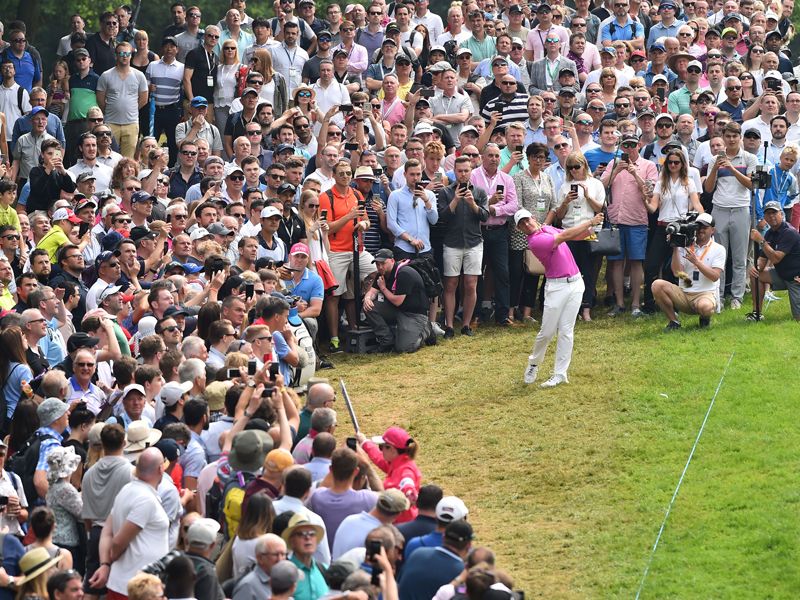Would Fewer Pro Tournaments Make Golf More Interesting?
After the lockdown, will we come to think that less is more?


GM regulars Jeremy Ellwood and Fergus Bisset debate whether or not, in normal circumstances, there are just too many professional golf tournaments.
Would Fewer Pro Tournaments Make Golf More Interesting?
Yes says Jeremy Ellwood
In this strange time of no professional golf, are we coming to realise that there are just too many tournaments? Would fewer pro tournaments make golf more interesting?
Pablo Larrazabal won the first event of the European Tour’s 2020 season a week after Jon Rahm had clinched the Race to Dubai in dramatic fashion at the DP World Tour Championship, the final event of the 2019 season.
Am I alone in craving sufficient breathing space to allow a degree of finality before excitement gradually builds once more as a new season approaches?
Absence makes the heart grow fonder, they say
Get the Golf Monthly Newsletter
Subscribe to the Golf Monthly newsletter to stay up to date with all the latest tour news, equipment news, reviews, head-to-heads and buyer’s guides from our team of experienced experts.
In my early years of following golf, the season finished in November before starting again the following spring.
The 1988 European Tour schedule ended with the Volvo Masters from October 27-30, with the 1989 season then teeing off at the Tenerife Open from February 23-26 meaning four months between events.
The perfect window to allow the seeds of anticipation to germinate among golf fans, or am I just looking back through rose-tinted spectacles?
Now, at least in normal circumstances, we have pretty much a 52-week schedule in Europe and America, with countless other major and minor tours serving up a never-ending feast of professional golf.
For professional golfers, that’s great, and no-one can blame them for going wherever the money is.
We would do the same in their shoes.
But is it so good for golf fans and the sport as a whole?
For me, over-exposure detracts from the natural ebb and flow of following a sport.
You can get too much of a good thing.
Rahm hardly had time to settle that crown firmly on his head before his colleagues began their campaigns to dethrone him just four days later.
Professional golf needs to be careful that oversaturation doesn’t lead to a decrease, rather than increase, in interest among those it relies on for support.
Would Fewer Pro Tournaments Make Golf More Interesting?
No says Fergus Bisset
The tapestry of worldwide modern professional golf tournaments makes for a compelling year-round narrative.
Those who follow the sport come to know the pattern of events, the protagonists, the challenges and the prizes on offer at various levels.
For die-hard golf fans, there are always tournaments to watch on TV, they can have their fill.
But it’s not obligatory to watch them all.
Was the 2019 Masters and Tiger’s incredible comeback win any less exciting because there had already been televised pro events earlier in the year? Of course not.
There are multiple pro tennis tournaments played every week, but they don’t make Wimbledon less interesting.
Those who prefer to watch or follow only the biggest events in any sport can still do so.
But the complexity of the pro golf game means lesser tournaments can also be interesting.
In second tier events, players compete not just for cash, but also a chance to make it into the Majors and other top competitions.
Lower still, on feeder tours and in qualifying schools, players battle for their livelihoods, to make enough money to carry on in the professional game, with the objective of moving up through the ranks.
All these levels of professional golf showcase drama, emotion and tension making for inspiring and interesting viewing.
An incredible number of professional tournaments are now played, by both sexes, on a weekly basis across the globe.
Every continent has a tour, many have lower level tours to boot.
This strength in depth feeds the very top level with a constant stream of new talent, allowing stars to emerge from the four corners, inspiring new players and growing the game.
The more professional tournaments there are around the world, the better golf’s global health.
Fewer pro tournaments would make golf weaker and, in the long run, less interesting.

Fergus is Golf Monthly's resident expert on the history of the game and has written extensively on that subject. He has also worked with Golf Monthly to produce a podcast series. Called 18 Majors: The Golf History Show it offers new and in-depth perspectives on some of the most important moments in golf's long history. You can find all the details about it here.
He is a golf obsessive and 1-handicapper. Growing up in the North East of Scotland, golf runs through his veins and his passion for the sport was bolstered during his time at St Andrews university studying history. He went on to earn a post graduate diploma from the London School of Journalism. Fergus has worked for Golf Monthly since 2004 and has written two books on the game; "Great Golf Debates" together with Jezz Ellwood of Golf Monthly and the history section of "The Ultimate Golf Book" together with Neil Tappin , also of Golf Monthly.
Fergus once shanked a ball from just over Granny Clark's Wynd on the 18th of the Old Course that struck the St Andrews Golf Club and rebounded into the Valley of Sin, from where he saved par. Who says there's no golfing god?
-
 Former Masters Champion Angel Cabrera Wins PGA Tour-Sanctioned Event Days Before Augusta National Return
Former Masters Champion Angel Cabrera Wins PGA Tour-Sanctioned Event Days Before Augusta National ReturnThe 2009 Masters winner claimed his maiden PGA Tour Champions victory at the James Hardie Pro Football Hall of Fame Invitational
By Mike Hall Published
-
 Anthony Kim Posts Best Ever LIV Golf Finish After 16-Shot Turnaround
Anthony Kim Posts Best Ever LIV Golf Finish After 16-Shot TurnaroundThe LIV Golf wildcard carded a five-under 67 in the final round in Miami to finish T29 - his best finish in the League
By Mike Hall Published